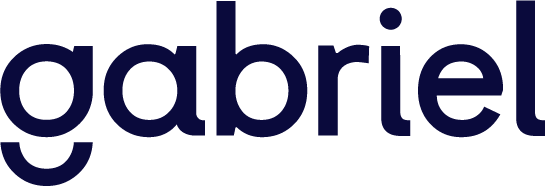When it comes to optimizing performance—whether in the gym, on the field, or in everyday life—the food you eat plays a crucial role in how your body responds to training and recovers afterward. The right nutrition supports your energy needs, enhances recovery, reduces the risk of injury, and ensures that your body has the building blocks it needs to repair and grow.
In this post, we’ll explore the key nutrients that fuel performance, how to structure your meals, and how to use food strategically for both immediate energy and long-term health benefits.
Understanding Macronutrients: The Building Blocks of Performance
Nutrition isn’t just about counting calories; it’s about understanding how different macronutrients—proteins, fats, and carbohydrates—contribute to your body’s performance and recovery. Let’s break each down:
Proteins: The Muscle Repair and Growth Fuel
Proteins are the building blocks of muscle tissue. After a workout, your muscles are broken down, and they need protein to rebuild and grow stronger. Consuming protein throughout the day, especially post-workout, is crucial to muscle repair and recovery.
Good sources of protein include:
-
Chicken, turkey, lean beef
-
Fish, especially fatty fish like salmon
-
Tofu, tempeh, and other plant-based options
-
Eggs and dairy products like Greek yogurt and cottage cheese
Aim for about 1.2 to 2.0 grams of protein per kilogram of body weight depending on your training intensity and goals. Post-workout is an especially important time to refuel with protein to maximize recovery.
Carbohydrates: The Body’s Primary Energy Source
Carbs are your body’s preferred source of energy, especially during high-intensity workouts. Your body breaks down carbohydrates into glucose, which is used by your muscles for fuel. Without enough carbs, your body may resort to burning fat or even muscle tissue for energy.
Good sources of carbohydrates include:
-
Whole grains like oats, quinoa, and brown rice
-
Fruits and vegetables, which provide both carbs and vital micronutrients
-
Legumes such as beans, lentils, and chickpeas
Carbs are especially important before and after workouts. Pre-workout carbs provide the energy you need for a strong session, while post-workout carbs help replenish glycogen stores that are depleted during exercise.
Fats: Essential for Recovery and Hormonal Balance
Healthy fats are vital for supporting overall health, particularly when it comes to hormone production and reducing inflammation. Fats also provide long-lasting energy, which can be especially helpful for endurance athletes or those training for extended periods.
Good sources of fats include:
-
Avocados
-
Nuts and seeds
-
Olive oil and coconut oil
-
Fatty fish, like salmon and mackerel
While fats are important, portion control is key since fats are calorie-dense. Incorporating fats throughout the day helps support sustained energy and recovery without overloading your system.
Meal Timing: When to Eat for Optimal Performance
The timing of your meals plays a significant role in maximizing your workouts and improving performance. It’s not just about what you eat, but also when you eat it.
Pre-Workout Nutrition: Fuel up with easily digestible carbs and a small amount of protein 30-60 minutes before your workout. This provides quick energy and starts the muscle-repair process even before your workout ends.
Pre-Workout Meal Idea:
A banana with a scoop of protein powder in water
- A banana with a scoop of protein powder in water
- Whole grain toast with almond butter
Post-Workout Nutrition: After your workout, your muscles are primed for recovery. Aim for a balanced meal containing both protein and carbs to replenish glycogen stores and aid muscle repair. Ideally, consume this meal within 30-60 minutes of finishing your workout.
Post-Workout Meal Idea:
-
Grilled chicken with quinoa and steamed broccoli
-
A protein smoothie with spinach, protein powder, berries, and a handful of oats
Throughout the Day: Consistently fuel your body with balanced meals and snacks to maintain energy levels and keep your metabolism running. Eating every 3-4 hours ensures that your body stays fueled and prevents dips in energy that could impact performance.
Hydration: The Forgotten Ingredient
Hydration is often overlooked, but it is essential for optimal performance. Dehydration can impair strength, endurance, and focus, as well as hinder recovery. Make sure you drink enough water throughout the day—aim for 2-3 liters, more if you’re engaging in intense exercise or working in hot conditions.
Electrolytes are also important, especially if you’re training for extended periods or sweating heavily. Consider adding a pinch of salt to your water or consuming a sports drink with electrolytes during intense workouts.
Putting It All Together: Sample Daily Meal Plan
To give you a practical example, here’s a sample meal plan designed to fuel your body for optimal training and recovery:
Breakfast:
-
Scrambled eggs with spinach and whole-grain toast
-
1 cup of mixed berries
Lunch:
-
Grilled chicken breast with quinoa, mixed greens, and olive oil dressing
-
A small apple
Snack:
-
Greek yogurt with chia seeds and a handful of almonds
Dinner:
-
Baked salmon with sweet potatoes and roasted Brussels sprouts
Post-Workout Snack (optional):
-
Protein shake with almond milk, protein powder, and a banana
Nutrition isn’t just about fueling your workouts—it’s about supporting your body’s long-term health and performance goals. By focusing on a balanced intake of protein, carbs, and fats, and timing your meals strategically, you’ll ensure that your body has the nutrients it needs to perform at its best, recover quickly, and build strength over time.
Stay tuned for the next blog in this series, where we’ll dive deeper into creating a personalized meal plan for optimal health. Until then, remember that great performance starts in the kitchen, and what you fuel your body with matters just as much as how you train.






Share:
Unlocking the Power of the Vagus Nerve: The Science Behind Healing and Well-Being
Creating Your Personal Meal Plan for Optimal Health